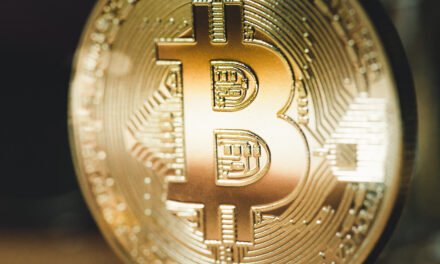In the world of cryptocurrencies, there is a new asset class that has been gaining popularity in recent years – stable coins. Stable coins are digital currencies designed to provide stability and predictability in price movements, making them ideal for everyday transactions and long-term investments. If you’re new to the concept of stable coins, read on as we explore everything you need to know about these unique assets.
What Are Stable Coins?
A stable coin is a type of cryptocurrency whose value is pegged to another asset or currency, such as gold or fiat money like the US dollar. The idea behind stable coins is to create a more stable and reliable alternative to traditional cryptocurrencies like Bitcoin, which can be highly volatile and unpredictable in their pricing. By tying its value to an external asset, a stable coin provides a level of certainty and security that other cryptos lack.
The Benefits of Using Stable Coins
One of the main benefits of using stable coins is their ability to maintain a consistent value over time. This makes them ideal for use as a medium of exchange, allowing users to make purchases without worrying about fluctuations in price. Additionally, stable coins offer many of the same advantages as other cryptocurrencies, including decentralization, transparency, and low transaction fees.
How Do Stable Coins Work?
There are several ways that stable coins can achieve their price stability. One common method is through a process called “seigniorage,” where the issuer of the stable coin creates additional units of the currency when demand increases, then destroys those units when demand decreases. Another approach involves backing the stable coin with physical assets, such as precious metals or real estate.
Types of Stable Coins
There are several different types of stable coins available on the market today. Some examples include Tether (USDT), TrueUSD (TUSD), Paxos Standard (PAX), and Gemini Dollar (GUSD). Each of these stable coins operates differently and offers unique features and benefits.
Where to Buy and Store Stable Coins
You can purchase stable coins from a variety of online exchanges, including Binance, Kraken, and Poloniex. Once you have purchased your stable coins, you will need to store them in a secure wallet or custodial service. Many stable coins offer their own branded wallets, while others can be stored in third-party wallets like Ledger Nano S or Trezor.
Risks Associated with Investing in Stable Coins
While stable coins offer many benefits, they also come with some risks. Because stable coins are still relatively new and untested, there may be unknown vulnerabilities or weaknesses that could lead to losses for investors. Additionally, because most stable coins are not backed by any government or financial institution, there is no guarantee of their value or liquidity. Finally, the regulatory landscape surrounding stable coins remains uncertain, so it’s important to stay up-to-date on legal developments before investing.
Comparing Different Stable Coin Options
If you’re considering investing in stable coins, it’s essential to do your research and compare different options carefully. Look at factors like the stability of the coin’s value, the issuers reputation, the fee structure, and the overall user experience. It’s also wise to diversify your holdings across multiple stable coins rather than putting all your eggs in one basket.
Stable Coins vs Traditional Cryptocurrencies
One key difference between stable coins and traditional cryptocurrencies like Bitcoin is their focus on stability versus growth potential. While traditional cryptos tend to be much more volatile and potentially profitable, stable coins offer greater predictability and reliability. Ultimately, whether you choose to invest in stable coins or traditional cryptos depends on your individual goals and risk tolerance.
Understanding the Regulatory Landscape of Stable Coins
As with any investment, understanding the regulatory landscape around stable coins is crucial. Currently, regulation varies widely depending on the country and jurisdiction involved. Some countries have taken steps to recognize and regulate stable coins as securities or commodities, while others have yet to take action. Be sure to consult with a qualified professional before investing in stable coins to ensure compliance with local laws and regulations.

Conclusion: Is a Stable Coin Right for You?
Ultimately, whether a stable coin is right for you depends on your specific needs and preferences. If you’re looking for a stable and reliable means of conducting transactions or storing value, a stable coin might be just what you’re looking for. However, if you’re seeking high returns and are comfortable with higher levels of risk, traditional cryptocurrencies may better suit your needs. Either way, educating yourself fully about the pros and cons of each option is critical before making any investment decisions.







